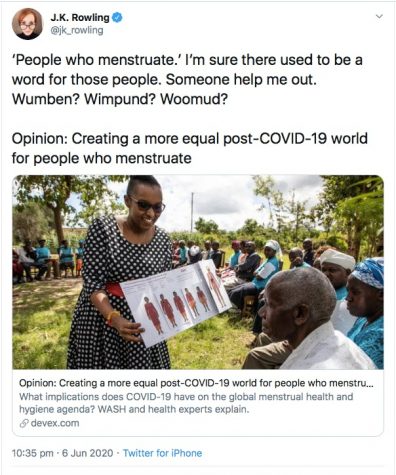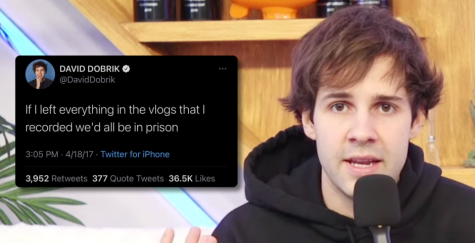Canceling Cancel Culture
June 2, 2021
A new form of social banishment has taken the internet by storm. Cancel culture is defined in the Merriam Webster dictionary as “the practice or tendency of engaging in mass canceling as a way of expressing disapproval and exerting social pressure.” Whether it was a decade ago, or recent, well-known internet influencers and celebrities are at odds with being “cancelled” over so mething they’ve said or did.
mething they’ve said or did.
So far, a great number of people have been cancelled on the internet. As a result, they have lost sponsorships, money, and support from fans.
The most well-known star to get canceled is Ellen Degeneres. After numerous employees came out saying Ellen made the workplace a toxic environment, Ellen’s talk show had a decline of 1 million viewers. Former employees claimed that they were fired after taking medical or bereavement leave and speaking up about discrimination.
J.K Rowling, known for writing the Harry Potter series, has been under fire after posting transphobic comments on twitter. She received a lot of backlash after this tweet, leading twitter users to claim she is a TERF: trans-exclusionary radical feminist.
 David Dobrik, a comedy vlogger with 18.4 million subscribers on youtube, has been cancelled for numerous reasons. One of his friends, Seth, said he was assaulted while doing a bit for Dobrik’s youtube channel.
David Dobrik, a comedy vlogger with 18.4 million subscribers on youtube, has been cancelled for numerous reasons. One of his friends, Seth, said he was assaulted while doing a bit for Dobrik’s youtube channel.
“I was supposed to do a make-out scene with Corinna [Kopf] and he was gonna have her in an old man mask and then switched her out with Jason Nash,” Seth explained. “After Jason pulled off his mask, I realized that I was just touched by someone I did not consent to.”
In my opinion, I believe that as a whole, the internet is an extremely toxic place. However, cancel culture can certainly be justified, but I don’t believe it is very effective. In the end, these celebrities who’ve gotten cancelled still have a presence on the internet. As a history teacher at Ipswich High School, Mr. Ames, said “cancelling [someone] doesn’t hold them accountable.” I agree with this statement because there is no law against being a horrible person, just social punishment.
Most celebrities have issued apologies after being cancelled. A senior at IHS, Jess Murphy, believes that “Honestly I never really believe an apology if it’s typed out on something like the notes app and then posted on Twitter or social media. Those types of apologies are very insincere. When I accept an apology personally, it is when the person tries hard to do better and they don’t just do it to save themselves.” I agree with this statement because David Dobrik only apologized to save himself. He only uploaded an apology video after losing his sponsorships and receiving severe backlash from his fans. This apology was uploaded to youtube and titled “Let’s Talk,” but the comments were turned off.
Overall, I believe cancel culture can be justified in certain situations, but a lot of the time the internet picks and chooses who to really cancel. I do not think people should be shamed into an apology. Genuine change and remorse come from a place of acknowledgement and recognition with a desire to understand.
